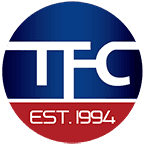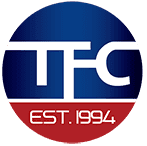Consumer credit refers to any type of credit or loan extended to individuals for personal, rather than commercial, purposes.
This includes credit cards, personal loans, and installment loans, which enable people to finance purchases and investments they may not be able to afford outright with available cash.
Benefits of Consumer Credit
The primary benefit of consumer credit is its ability to facilitate necessary purchases and investments, such as a car for commuting to work, even when sufficient savings are not immediately accessible. However, consumer credit comes with inherent risks.
FAQs About Consumer Credit
What Is Consumer Credit? Consumer credit refers to the various types of loans and credit available to individuals for personal, family, or household purposes. This includes credit cards, personal loans, mortgages, and auto loans. Consumer credit allows people to make purchases and pay them off over time.
How Does Consumer Credit Impact My Credit Score? Your credit score is significantly influenced by how you manage consumer credit. Timely payments, keeping credit card balances low, and limiting new credit inquiries help maintain a good credit score. Late payments, high balances, and frequent credit applications can negatively affect your score.
What Are the Benefits of Using Consumer Credit Responsibly? Using consumer credit responsibly can help you build a strong credit history, which is essential for securing loans with favorable terms, renting apartments, and sometimes even getting a job. Responsible credit use includes paying bills on time, keeping credit utilization low, and only applying for credit when necessary.
Expert Quote “Understanding and managing consumer credit is crucial for financial health. Responsible use of credit can open many doors, from buying a home to securing better loan terms.” – Daniel Joelson, Consumer Finance Expert
Risks of Consumer Credit
One of the biggest dangers of consumer credit is the potential to borrow more than one can afford to repay, leading to a cycle of escalating debt. Additionally, consumer credit often involves high-interest rates and fees that can accumulate, making debt repayment challenging.
Practical Steps Before Applying for Consumer Credit
Before seeking consumer credit, individuals should:
- Check their credit scores and reports to understand their creditworthiness.
- Aim for higher credit scores to qualify for better interest rates and terms.
- Compare rates and fees offered by different lenders to find the most affordable options.
- Read and comprehend all loan terms and conditions before accepting any loan or credit card offer.
Consumer Protection and Resources
Government resources like Credit.gov and agencies such as the Consumer Financial Protection Bureau (CFPB) and Federal Trade Commission (FTC) offer valuable information and tools to help consumers make informed financial decisions, understand credit options, and avoid scams.
Different Types of Consumer Loans
Consumer loans, which cover personal or household expenses, can include credit cards, personal loans, auto loans, and home equity loans. These loans may be unsecured (no collateral required) or secured based on the lender’s requirements and borrower’s creditworthiness.
Understanding Personal Credit
Personal credit refers to an individual’s creditworthiness based on their credit history and score. Good personal credit opens doors to favorable loan terms and approvals, while bad credit can limit access to credit or result in less favorable terms.
Differentiating Credit and Loans
While both credit and loans provide access to funds, credit is more flexible and ongoing (e.g., credit cards) compared to loans, which are typically for fixed amounts with predetermined repayment terms.
Conclusion: Responsible Borrowing with Consumer Loans
In conclusion, consumer loans can be instrumental in managing finances but require responsible borrowing practices. It’s crucial to understand loan terms fully and ensure affordability before committing to any credit or loan agreement.
For assistance with consumer loans, including title loans, contact TFC Title Loans at 844-242-3543. We’re here to guide you through financial emergencies with the right loan options.
TFC Title Loans are here to help you to get the right title loan for your financial emergencies, if you have any questions, please call us at 844 242 3543.


